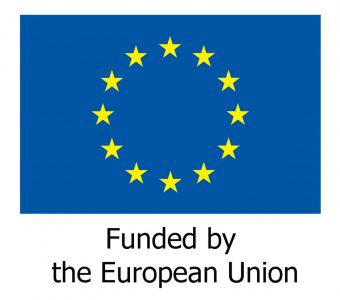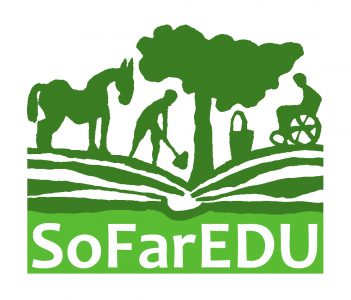Social Farming (SF) is a way of using an agricultural enterprise as a setting for therapy, integration, rehabilitation or occupation of people with special needs. For the farmer it represents an opportunity to diversify income and labour sources and to take social responsibility.
SF affects two professions the most: Farmers and Social workers. In recent years an increasing number of Farmers and Social Workers are becoming interested in SF as a new branch of a Farming or Social Enterprise. However, neither agricultural nor socio-educational university courses are able to respond sufficiently to this trend. In most European countries, only a few lighthouse projects offer further education at University level. SF is interdisciplinary — agricultural knowledge, management skills, as well as socio-educational competences are necessary. Thus, SF is based on different professions which have had very little contact so far.
There is a high demand for scientific research as well as educational innovations and teaching material supporting SF. Subjects such as Agriculture, Social Work, Psychology or Forestry can benefit from offering knowledge and skills needed for running a Social Farm, as more and more of their members will encounter it in the future. Educational Institutions already offering SF courses are highly interested in facilitating the exchange of students and teaching staff. They also look to enhance their range of studies.
This project wants to fill these gaps. It aims at empowering rural areas across Europe by increasing the quantity, and above all, the quality of Social Farms. This outcome will be realised by giving Universities the tools to teach the necessary SF skills. By defining Quality Standards in teaching SF, followed by developing a Curriculum on SF in Higher Education, and especially by offering teaching material tailored to the needs of various target groups, education about SF will be greatly improved.
Coordinated by Thüringer Ökoherz e.V., a German Organic Farmers and Environmental Association, already running many SF projects, six European Universities, all experienced in research and teaching about SF, will cooperate to create the highest quality educational programme in SF:
- Eberswalde University for Sustainable Development, Germany
- Academy of Social Pedagogy and Theology, Czechia
- University of South Bohemia, Czechia
- Szent István University, Hungary
- University College for Agrarian and Environmental Pedagogy, Austria
- Norwegian University College of Agriculture and rural Development
The Universities are experienced with educating many different target groups, including the range of those with interest in SF, such as elementary education students, professionals who upgrade their education, future farming consultants, and students coming from different disciplines e.g. social work or agronomics. The partner organisations also possess extensive knowledge about curricula development. Furthermore, all partners are engaged in networks of professionals working in SF (e.g. farmers, gardeners, psychologists or pedagogues), who will be recruited and involved in the project by the Consortium.
Higher Education for SF will be advanced by the following intellectual outputs:
- Development of Quality Standards for teaching SF
- Definition of a Higher Education curriculum
- Drafting an Abstract Book describing the content of all units necessary for teaching SF
- Elaboration of full Chapters of the most important topics that need to be taught about SF
The development of the Intellectual Outputs will be realized by expert interviews and focus group discussions. The project will be accompanied by a regular exchange between partners, online and in regular transnational project meetings. Dissemination will happen during multiplier events, where the project and its results are shared with a wider audience. Other public relation measures will take place. An internal evaluation will also be part of the Project.
In the second part of the Project a Pilot Course will be performed to test the developed materials and to further improve them.
In the end this strategic partnership will contribute to Higher Education about SF which is high in quality, transferable, can be mutually recognised between European universities and will ease the international mobility of students wishing to learn about SF .
The Outcome of the project will be well trained students of Agriculture, Social work and other fields related to SF. Eventually this will ensure a high quality of SF in Europe for the benefit of farmers, and the clients of SF. By facilitating research and the establishment of Quality Standards in SF, this project will also have an impact on increasing the number of Social Farms in Europe. Therefore, it will make an important contribution to empowering rural areas in Europe and at the same time fostering the inclusion of people with special needs or at risk of social exclusion.


